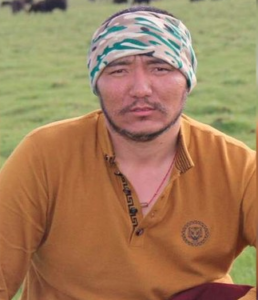 A Tibetan man who had been held as a political prisoner has died following his treatment at the hands of the Chinese authorities. Chinese officials refused him permission to travel and receive treatment for health conditions caused by the torture and forced labour he endured in prison.
A Tibetan man who had been held as a political prisoner has died following his treatment at the hands of the Chinese authorities. Chinese officials refused him permission to travel and receive treatment for health conditions caused by the torture and forced labour he endured in prison.
The Tibetan Review reports that the man, Choekyi, 43, suffered damage to his liver and kidneys as a result of his treatment in the Mianyang prison. He died on May 7 after his repeated requests to seek medical attention in Lhasa or local hospitals were denied.
According to the Central Tibetan Administration, Choekyi was detained by Chinese Police in June of 2015 and charged with separatist activities for wearing a T-shirt celebrating the 80th birthday of His Holiness the Dalai Lama, and for posting photos of His Holiness on his WeChat account. The authorities also took his sister and nephew into custody. They were interrogated and beaten for 15 days before finally being released. Choekyi’s case received international attention, including a resolution passed by the European Parliament calling on the Chinese government to allow him access to adequate medical care.
The Central Tibetan Administration reports that Choekyi was released from prison on January 18, 2019 but was kept under strict surveillance. According to Radio Free Asia, after his release his health continued to deteriorate. Although his family could pay for medical care, authorities repeatedly denied his requests to seek treatment.
Phayul.com reports that the Tibetan Centre for Human Rights and Democracy is demanding that the Chinese authorities allow an independent and impartial investigation into Choekyi’s death stating, “Local Chinese officials responsible for blocking Choekyi from seeking medical care must be made accountable for their unlawful actions and penalised in accordance with domestic and international legal standards.”
Choekyi is widely reported in the exile Tibetan media as being the second former Tibetan political prisoner to die in recent weeks of injuries caused by the torture and poor conditions suffered in Chinese prisons. Tsering Bagdro, 51, died on April 26 of injuries and poor health caused by the treatment he received during eight years in prison.




 Print
Print Email
Email